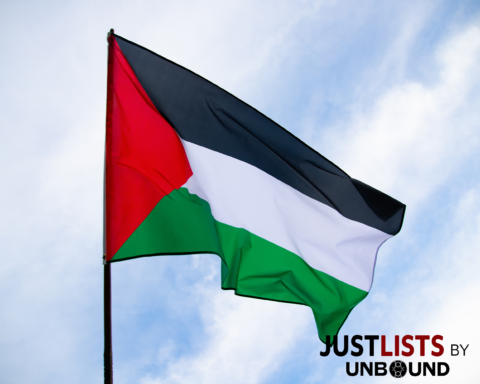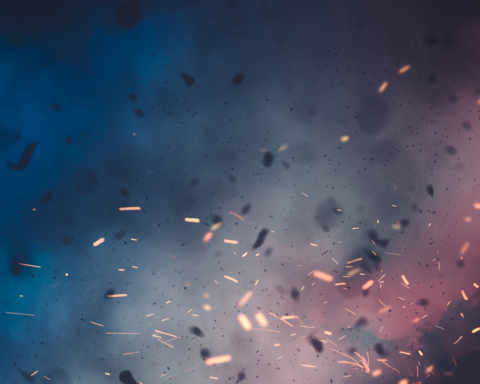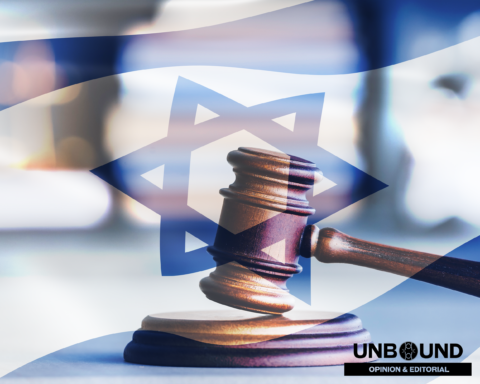May 1, 2014

Photo Credit: Ray Roberts
Editor’s Note: The following blog is one if the entries in the daily blog from the Presbyterian Peacemaking Program’s Mosaic of Peace Conference to Israel/Palestine in April/May of 2014. Read the other featured blog in Unbound here, and click here to read more from the blog!
If yesterday was a slow day of settling in, today was action packed! We had a full day in Jerusalem visiting holy sites and getting an in-depth look at the situation of the Jewish people in the Holy Land.
Our day began with a visit to the Mount of Olives, where we could overlook the city, take group pictures, and even ride a camel, if we felt so inclined! Next, we descended to the Garden of Gethsemane, where Jesus prayed before his arrest, a holy and meaningful experience for many. Our final visit was to Yad Vashem, the Holocaust museum in Israel, where we walked solemnly through memories of the abuse, human rights violations, and genocide against the Jews of Europe during the 1930s and 40s through discrimination, ghettos, concentration camps, and systematic torture and murder.
Appropriately in the wake of that visit, our speakers today represented for the most part the Jewish Israeli perspective. First, we heard from Rabbi Donniel Hartman who, like other Jews we’ve heard from so far, supports the two-state solution and identifies as a Zionist. In his words, “As a Zionist, I believe that the Jewish people have the right to sovereignty and land. And, as a Zionist, I couldn’t not believe in the same thing for the Palestinian people.”
___________________________________________
In his words, “As a Zionist, I believe that the Jewish people have the right to sovereignty and land. And, as a Zionist, I couldn’t not believe in the same thing for the Palestinian people.”
___________________________________________
Donniel explored 3 different traditions of peace in the Jewish tradition. The first he called utopian or messianic peace – the peaceable world described in Isaiah 11, where the wolf lies down with the lamb, or Isaiah 2, where swords are beaten into plowshares. He said this peace serves as a vision – something toward which we can aspire and for which we can pray – but is far from the daily reality of Israel/Palestinian and can ultimately be a vision of peace that erodes our hope or encourages us to wait in complicity with the status quo.

Photo Credit: Erin Dunigan
The second type of peace is the peace of domination, which he took from the first few verses of Deuteronomy, or the conquest narratives from Joshua. He said this kind of peace that goes with the rhetoric of “chosenness” and claims “God loves me/my people more.” It is not true peace but is rather the idolatry to which all 3 Abrahamic monotheistic faiths are most tempted; it limits who God is and who God can/can’t love and replaces God with one’s own religious community as the object of worship.
Finally, Donniel described a third kind of peace, the peace of justice – his vision for the ultimate resolution in the Holy Land. He traced this type of peace to Deuteronomy 2:26-29, where Moses leads the Hebrews through the territory of King Sihon and promises to cross through the land, not straying to the right or left and not taking anything that isn’t his. Donniel pointed also to a passage in the Jewish Mishnah that says if two people come across a garment in the road and it cannot be decided who found it first, it should be divided between them. For Rabbi Donniel, this type of peace embodies justice, yet he pointed out that in Jewish Scripture and tradition, this type of peace that only exists outside of the Promised Land. He told us it is his wish to teach his people to engage in this sort of peace within the Promised Land and to remember that God’s love is bigger than one people alone.
___________________________________________
She told us the one thing she hoped we would take away from our time together is that religious extremists on all sides of the conflict don’t speak for her or for the majority of the people living in Israel/Palestine.
___________________________________________
The second Jewish speaker we heard from today was Rabbi Naamah Kelman of Hebrew Union College, a Reformed Jewish rabbi and the first woman rabbi ordained in the State of Israel. Rabbi Donniel and Rabbi Naamah both shared a belief in and hope for the two-state solution, and they both shared the statistic with us that 80% of the Israeli people are in favor of the two-state solution. As Rabbi Naamah told us her hopes for the Holy land and for Judaism in general, she shared her shame and sadness over much of what is understood and Judaism and Zionism. She identifies as both a Jew and a Zionist but said, particularly of the ultra-orthodox movement in Israel, “That is not my Judaism and not my Zionism!”

Photo Credit: Sarah Gengler
She told us the one thing she hoped we would take away from our time together is that religious extremists on all sides of the conflict don’t speak for her or for the majority of the people living in Israel/Palestine. She spoke of injustices like the Israeli occupation of the West Bank, the wall, the diversion of water from Palestine, etc., as grave injustices against human rights. She talked about how much of their focus recently and their plan for the years to come at Hebrew Union College has to do with interfaith dialogue and cooperation. When a member of our group asked her what we as U.S. Christians could do to constructively engage with Israel/Palestine in the midst of the conflict, she asked us to support a two-state solution, to support initiatives for peace and reconciliation, to identify with the pain of both peoples, and to be a witness to both peoples, holding up a mirror in which both sides could see themselves in their behavior. What it might look like to be such a witness, such a mirror, was a topic of conversation among members of our group later.
Our final speaker today was Albert Agazarian, an Armenian Christian living in Jerusalem. He talked to us about the city of Jerusalem as itself a mosaic of different faiths and nationalities. He described the pain of the occupation for his people and for those living as refugees, calling the occupation an attempt to “despoil the mosaic that is Jerusalem.” He mentioned the archaeology of the city and expressed a belief that each layer of that archaeology, each group of people who had lived in Jerusalem over time, belonged to the city. The problem comes, he said, when people try to choose one layer over another. He warned us, in words eerily similar to our other speakers today, that the most dangerous sentence in the world is: “We alone are God’s chosen people.”
___________________________________________
[Rabbi Kelman] asked us to identify with the pain of both peoples and to be a witness to both peoples, holding up a mirror in which both sides could see themselves and their behavior.
___________________________________________
We closed the evening in small groups, reflecting on what from today gave us hope and what we found discouraging. Among my group of 10 people, a common thread of hope that emerged was the statistic that 80% of Jewish Israelis support a two-state solution – many of us heard a more hopeful and more palatable understanding of Israel and of Zionism than what we often hear in the U.S. However, a common point of discouragement was that so few people – in the Holy Land and outside of it – seem to be acting on that belief or seem to have hope that the situation will improve anytime soon.

Photo Credit: Erin Dunigan
Another concern that emerged was our inability to really reflect on the situation because we haven’t heard that many Palestinian voices so far. As we heard rabbis talk of the two-state solution along 1967 borders, the solution supported by our PC(USA) social witness policy, many of us found ourselves wondering: Is this solution – where the land becomes 78% Israeli and 22% Palestinian – acceptable and just in the eyes of Palestinians? I remember that our speaker in the U.S. supported it as a necessary concession, but what about Palestinians here?
Fortunately, the trip has only begun, and we will have the opportunity to hear many more voices – both Palestinian and Israeli, before it ends. Our Friday schedule includes meetings with at least 3 Palestinian Christian leaders in Jerusalem. We look forward to continuing the conversation and hearing their witness as to how we can be faithful interfaith brothers and sisters, accompanying them in their struggles.
*****
AUTHOR BIO: Rev. Ginna Bairby is the Managing Editor of Unbound and was honored to serve as the official blogger for the Mosaic of Peace Conference in Israel/Palestine, keeping those back home informed of what the group was learning and experiencing each day. To read other entries from Ginna’s Mosaic of Peace Blog, click here.
Click here to read the items of business concerning the Middle East coming before the General Assembly this summer.
Read more articles from The Road to Detroit: Issues of Social Justice Before the 221st General Assembly!





Unbound Social